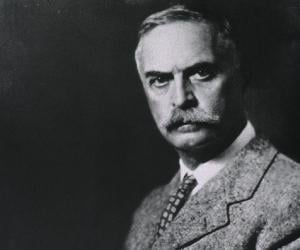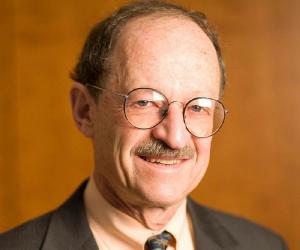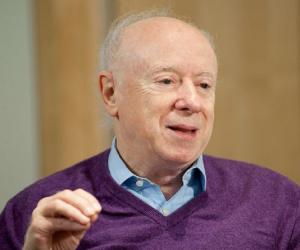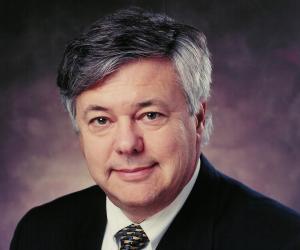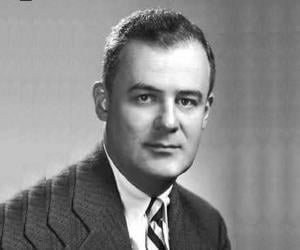Karl Landsteiner was a physician, biologist, and immunologist. He is credited with distinguishing the main blood groups as well as identifying the Rhesus factor. He is also credited with discovering the polio virus along with Erwin Popper and Constantin Levaditi. He won the Aronson Prize in 1926. In 1930, Landsteiner was honored with the Nobel Prize in Physiology or Medicine.
Harold E. Varmus is an American scientist who shared the 1989 Nobel Prize in Physiology or Medicine with J. Michael Bishop for their discovery of the retroviral oncogenes' cellular origin. From 1993 to 1999, he served as the director of the National Institutes of Health. From 2010 to 2015, he served as the director of the National Cancer Institute.
American molecular geneticist Joseph L. Goldstein was born to clothing store owner parents in South Carolina. He ended up winning a Nobel Prize for his research on cholesterol metabolism, which later helped researchers develop statin drugs. He currently chairs the molecular genetics department of the University of Texas.
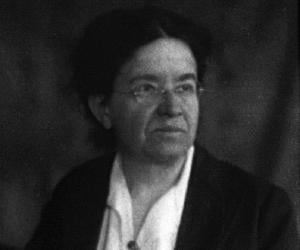
Florence R. Sabin was an American medical scientist best remembered as a pioneer for women in science. Sabin was the first woman to hold a membership at the National Academy of Sciences and a full professorship at the prestigious Johns Hopkins School of Medicine. Florence R. Sabin was made an inductee of the National Women's Hall of Fame in 1973.
Michael S. Brown is an American geneticist who received the 1985 Nobel Prize in Physiology or Medicine. His research on cholesterol metabolism along with Joseph L. Goldstein paved the way for the development of statin drugs, which are used today by 16 million Americans. For his contributions to medicine, Brown was honored with the National Medal of Science in 1988.
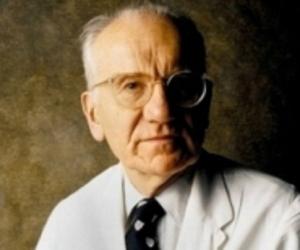
Victor A. McKusick was an American medical geneticist and internist. Widely regarded as the father of medical genetics, McKusick was an ardent supporter of the mapping of the human genome. A celebrated geneticist, Victor A. McKusick won many prestigious awards including the Benjamin Franklin Medal for his contribution to science.
Nobel Prize-winning American pediatrician and virologist Frederick Chapman Robbins is best remembered for his pathbreaking research on the poliomyelitis virus, which later helped in the development of polio vaccines. He also taught pediatrics at the Case Western Reserve University and worked with the US Army’s virus and rickettsia lab.
